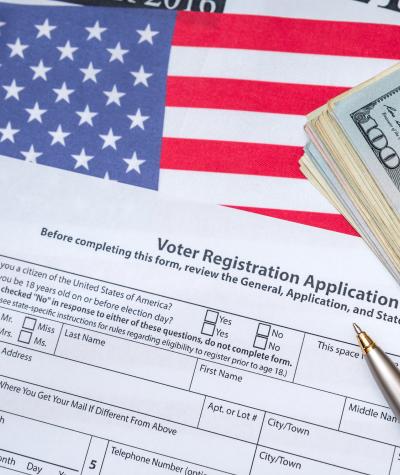In the United States nearly six million individuals are denied the right to vote due to a past conviction, and, for many of those individuals, the ability to vote is contingent upon their ability to pay an increasing number of fines, fees, court costs and restitution.
These policies impose a modern-day poll tax on individuals with past convictions.
On July 25 2019, CLC hosted "Too Poor to Vote: How the Criminal Justice System Has Created a New Era of Poll Taxes,” a conversation on the intersection of the criminal justice system, wealth and voting.
Moderated by Keesha Gaskins-Nathan, Program Director, Democratic Practice - United States, Rockefeller Brothers Fund, the call featured:
- Danielle Lang, Co-Director, Voting Rights & Redistricting, Campaign Legal Center
- Chiraag Bains, Director Legal Strategies, Demos
- Aderson Francois, Professor and Director of the Civil Rights Clinic at Georgetown Law
- Thea Sebastian, Policy Counsel, Civil Rights Corps
- Alfonzo Tucker, Alabama Resident
During the call CLC and the Georgetown Law Civil Rights Clinic released, Can’t Pay, Can’t Vote: A National Survey on the Modern Poll Tax, one of the first comprehensive studies of how voting rights restoration schemes deny the right to vote to those who cannot afford to pay legal debt.
Listen to the call:
